UP CLOSE:
Yale-NUS: A partner in name only?
The afternoon of May 29, 2017, marked a momentous occasion for the Yale-NUS community.
Students, parents and donors streamed into the University Cultural Center at the National University of Singapore to witness this nascent joint venture between NUS and Yale — two universities with centuries of history between them — proudly graduate its inaugural class of students.
As students walked the red-carpeted stage to receive degrees from the president of Singapore, they passed a series of beaming administrators who had contributed time and effort to develop Yale-NUS.
There was outgoing Yale-NUS President Pericles Lewis, who had led the college since its inception. Next to him was former Yale President Richard Levin, who initiated discussions with NUS President Tan Chorh Chuan about founding the college that eventually became Yale-NUS. Tan was also present — as was Singaporean Minister of Education Ong Ye Kung, whose ministry coordinates the significant financial support Yale-NUS receives from the government of Singapore. Those dignitaries were joined by members of the governing boards of Yale, NUS and Yale-NUS.
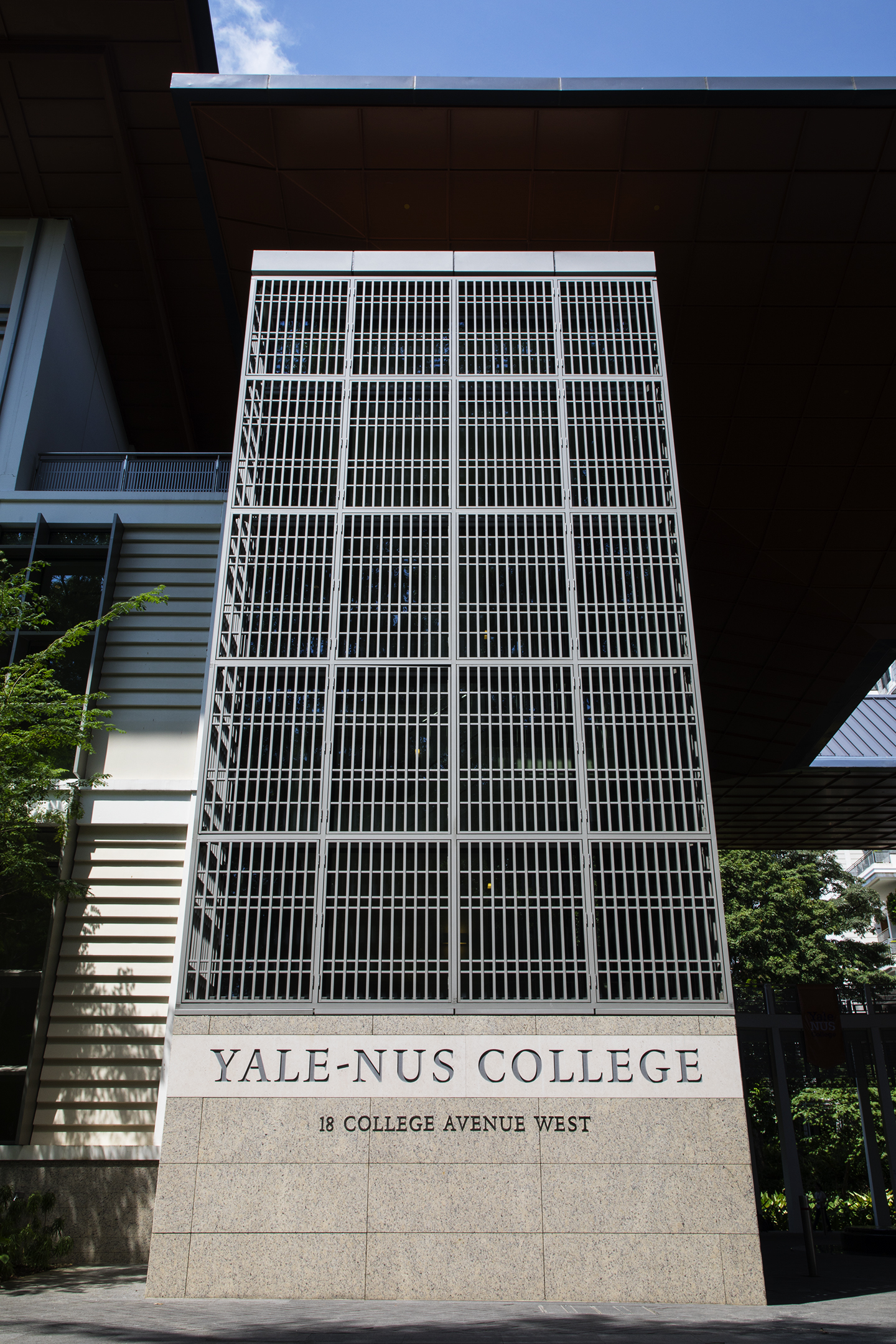
But one figure was missing from the stage: Peter Salovey, Yale-NUS board member and president of Yale.
Salovey said in an email to the News that he was unable to attend the ceremony because it took place the day after one of Yale’s reunion weekends. “I strongly support Yale-NUS College and would have loved to be there,” he said. Salovey had previously visited Singapore to attend Yale-NUS board meetings, and had also attended the inauguration of the college’s campus in October 2015.
Salovey’s conspicuous absence at one of the most significant events in the brief history of Yale-NUS fits into a broader trend of decreasing explicit engagement between Yale and the venture it co-founded.
According to over 30 administrators, professors and board members at Yale, NUS and Yale-NUS, the five-year-old college is thriving. The size of the faculty and the student body is nearing the long-term levels administrators predicted. Over the past five years, Yale-NUS has also emerged as one of the most selective undergraduate schools worldwide — even more selective than Yale for most of its application cycles.
Graduates have gone on to jobs at a variety of multinational companies. Those pursuing further study have been accepted into programs at universities based in China, the UK and the U.S., including Yale. The school has also received plaudits for its rigor and innovation. A piece in this summer’s Harvard Alumni Magazine lauded Yale-NUS as an encouraging effort to rethink undergraduate education, and noted that the school is “pioneering liberal arts in Asia.”
But just what role Yale continues to play in that success is unclear. Since that May afternoon, Lewis has returned to Yale, where he was previously a professor and now serves as vice president for global strategy. Lewis’ departure from Singapore was preceded by that of Charles Bailyn ’81, current head of Benjamin Franklin College and Yale-NUS’ inaugural dean of faculty from 2012 to 2016.
A program that saw dozens of Yale faculty visit Yale-NUS each year to teach short courses was not offered this fall, and is currently being re-evaluated. At the moment, only two Yale faculty members are teaching at the Singaporean college, and there is not a single senior administrator involved in the day-to-day operations of Yale-NUS who has taught or worked at Yale. And as administrators in both New Haven and Singapore have repeatedly stressed, Yale is not providing and has never provided any material financial support to Yale-NUS.
Aside from the name, then, what remains of Yale’s relationship with its marquee international venture, and what might explain its current state?
DISPROPORTIONATE CONTRIBUTIONS

The influence of the Singaporean founding partners of Yale-NUS becomes apparent as soon as one steps on campus.
The school is located within NUS’ 150-hectare campus in the southwestern part of Singapore. It is serviced by internal NUS buses, and shares key facilities with the rest of NUS, including laboratories, libraries and swimming pools. Yale-NUS technology systems are administered by NUS staff, and, for accounting purposes, the school is treated as a unit of NUS and thus does not report its financial information separately.
Yale-NUS’ governing charter notes that it is an autonomous college operating under the aegis of NUS. In May, students received an NUS degree at graduation, not a joint degree endorsed by both founding partners. Reception areas are stocked with publications informing patrons about the latest news at Yale-NUS and NUS. There are no copies of Yale publications nearby.
Even in cases in which financial consultation with Yale may seem beneficial at first glance, the Yale-NUS administration relies solely on the guidance of NUS. According to a Yale-NUS spokesperson, in order to maximize investment returns, Yale-NUS shares investment advisors for its $270 million endowment with NUS. The school does not formally consult with the employees of Yale’s Investments Office, which has invested more money outside the borders of the U.S. than the total size of the NUS endowment, and is widely recognized as the leading institutional investor in higher education.
“There are certain immutable factors we cannot change because of where we are,” Yale-NUS President Tan Tai Yong said. “We can cross the path and be at NUS. It takes a lot longer to get to Yale.”

NUS’ efforts to assist its newest autonomous college have also been bolstered by the Singaporean government.
“We are very fortunate in Singapore to have a far-sighted government, which believes in innovating well ahead of the curve in order to create new value for our society,” NUS President Tan Chorh Chuan told the News. “The government of Singapore has invested to establish [Yale-NUS] as a world-class institution, build its academic program and construct the new campus.”
While encouraging NUS to pursue the establishment of a liberal arts college, the Singaporean government has also enacted policies to help fund higher education in the country. For instance, donations to the Yale-NUS endowment are now matched by the government in multiples determined by the size of the donation — in some cases, the government may provide as much as $3 for every dollar donated. Analysis by the financial publication Pensions & Investments indicates that the government also allows claims of $2.50 in tax deductions per dollar donated by Singaporeans to Singaporean colleges and universities.
Beyond creating policies to facilitate the growth and improvement of Yale-NUS, Singapore’s government continues to provide direct — and substantial — financial support to the school.
Yale-NUS Executive Vice President Steven Bernasek noted that the long-term plan of the Yale-NUS administration is to sustain the college’s operations using a similar financial model to private colleges in the U.S., where roughly a third of the annual budget is provided by endowment income, another third by tuition, and the final third by various sources, including public and private research grants. He added that the Singaporean government has committed to providing any financial support that Yale-NUS may need until the school reaches a stage at which such a funding model is feasible.
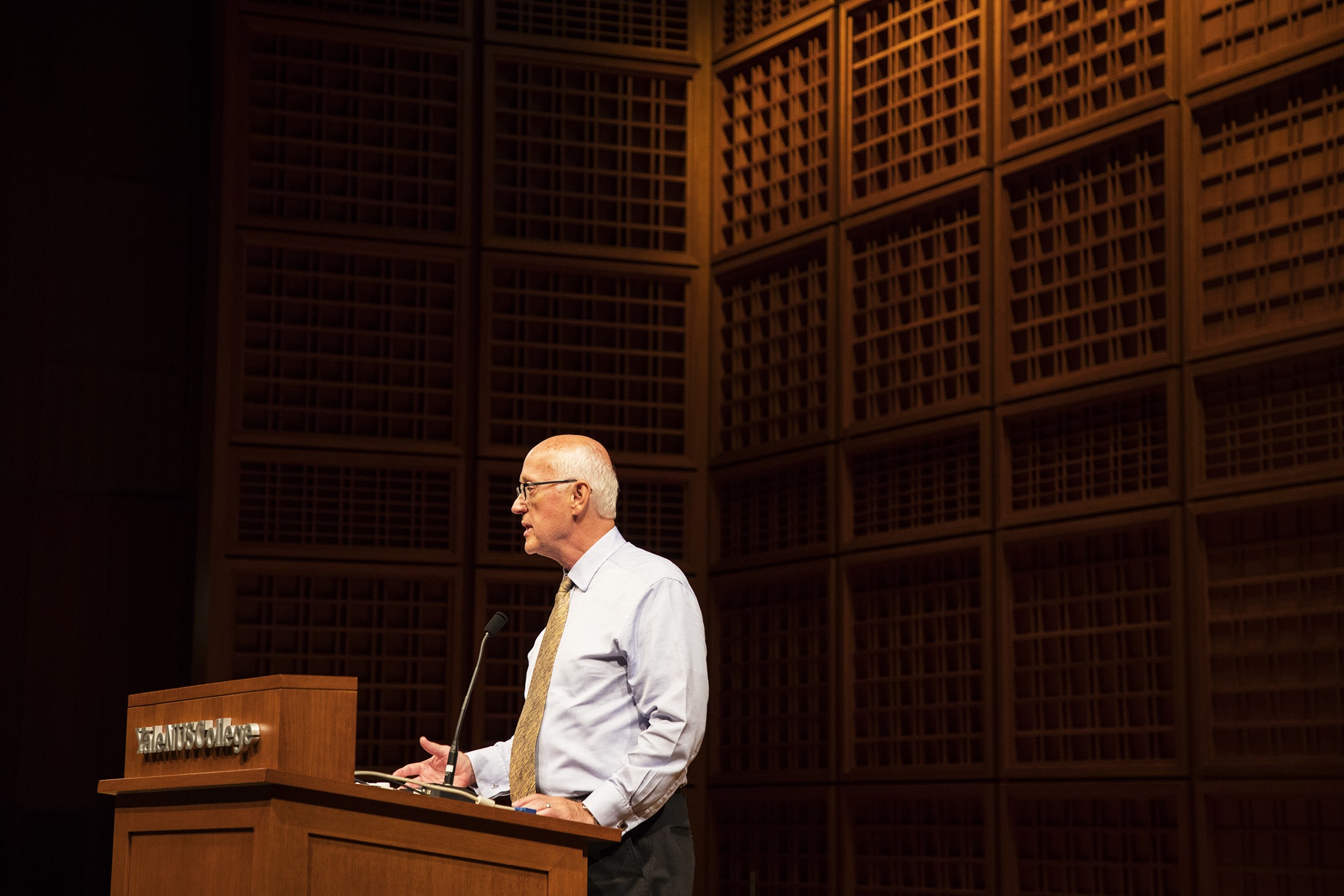
Steven Bernasek.
SHARING FACULTY
Over the years, the proximity between NUS and Yale-NUS has facilitated significant opportunities for intellectual exchange. Yale-NUS students and faculty are free to peruse electronic content accessible only with costly licenses that NUS has purchased for its students. Undergraduates at both colleges can also cross-register for classes.
And faculty frequently collaborate across colleges: There are several more professors who hold joint appointments at NUS and Yale-NUS than there are professors working at both Yale and Yale-NUS.
“Sometimes we’ve persuaded NUS faculty to come over and teach a course at the very last minute,” Bernasek said. “It’s not so easy to do that with Yale.”
Still, as Yale-NUS was being established, Yale contributed the time, effort and expertise of key personnel like Bailyn and Lewis, and also hosted workshops in New Haven that facilitated the development of Yale-NUS’ increasingly renowned, globally-oriented curriculum.
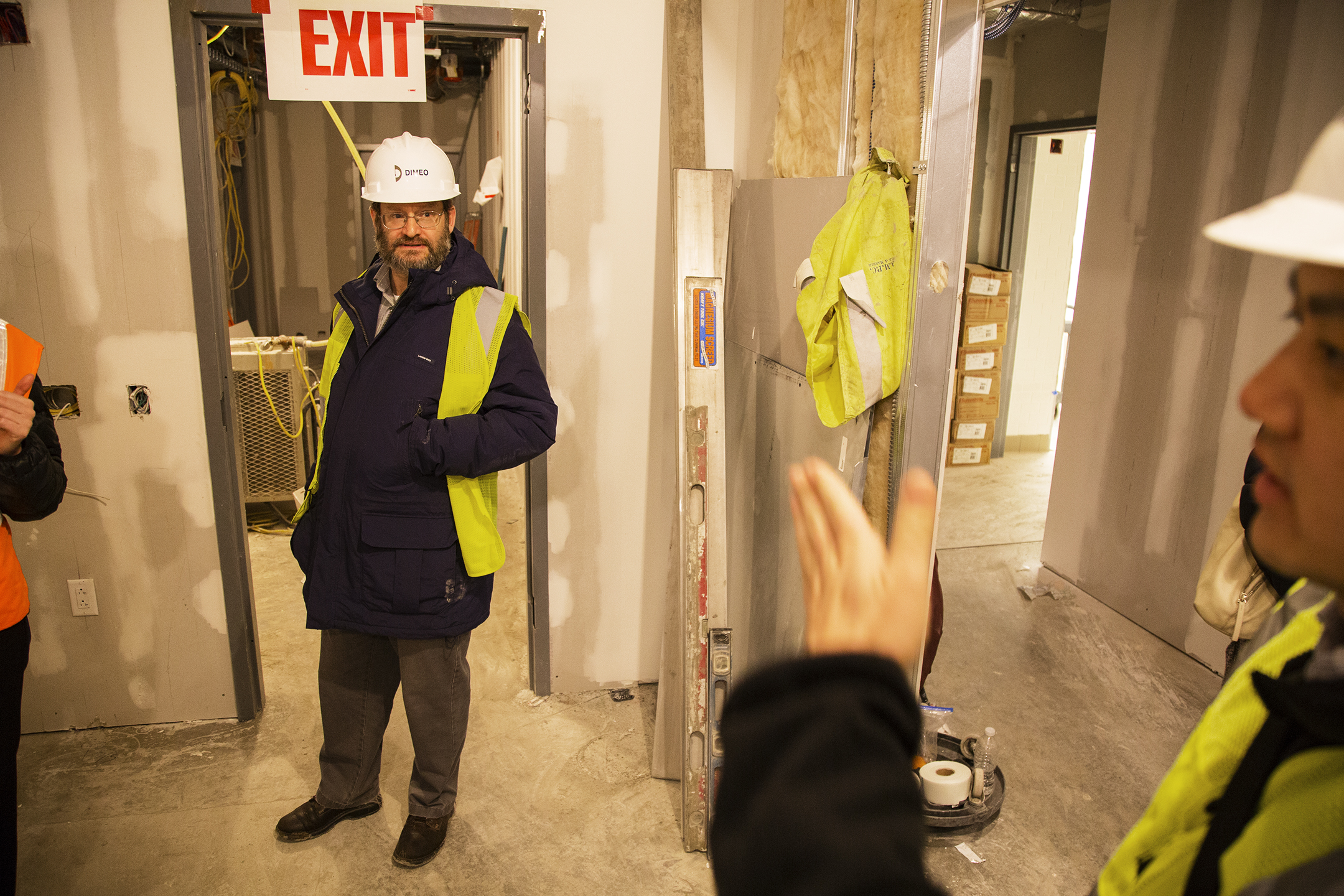
Charles Bailyn.
“There’s capital, and there’s intellectual capital — Yale provided an enormous amount of intellectual capital in the founding of the college,” Bernasek said, citing the University’s assistance with faculty hiring and curricular development. “[The impact] of that will continue on, and I hope we can continue to strengthen those kinds of interactions.”
Now, continued faculty exchanges present an ideal opportunity for maintaining and even strengthening the partnership between Yale and Yale-NUS, Bernasek said.
According to Bernasek, the exchanges provide opportunities for Yale faculty — who are more experienced, on average, than their counterparts at Yale-NUS — to mentor and guide the Yale-NUS faculty. He added that the exchanges also benefit Yale because the University’s faculty witness the inner workings of a venture many participants refer to as a “start-up” college.
“What I’ve learned from speaking to visiting committee members from Yale is that they’re taking back to Yale some of the curricular developments that we have, and some of the nimbleness that we have, or at least wishing they could,” Bernasek said. “It goes both ways — I have to admit that for now we probably take a little bit more from Yale than the other way around, but I think that it’s a two-way street.”
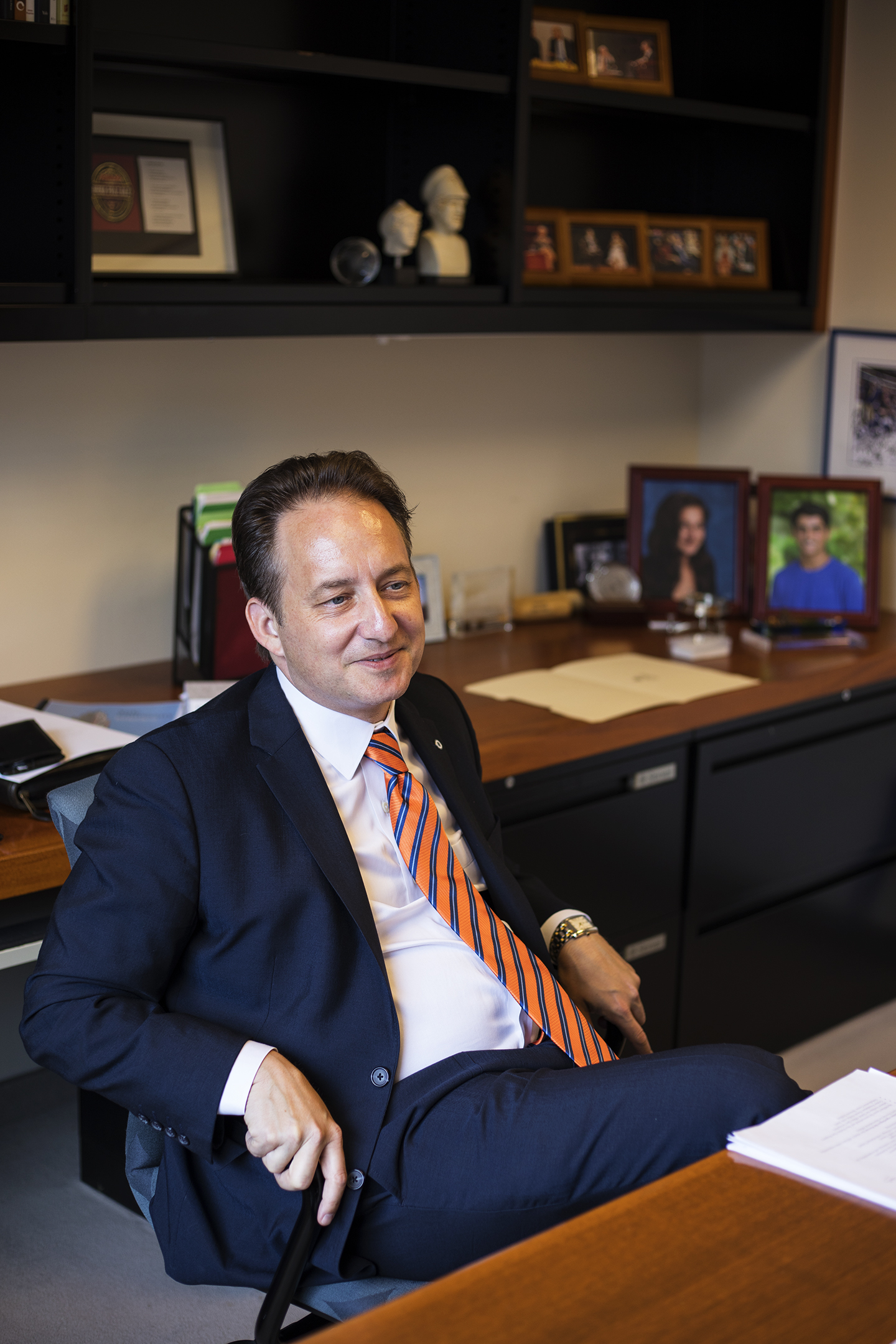
Pericles Lewis.
At the announcement of his appointment as Yale-NUS’ second president, Tan said he was committed to bringing more visiting faculty from Yale to campus. Yale-NUS Governing Board Chairperson Kay Kuok told the News that the school has raised funds to make Tan’s vision a reality.
“We have benefited greatly from our strong partnership with Yale, and one particular area I would see a lot of value in is having eminent Yale professors visit us and add to our teaching and research,” Kuok said.
Kuok added that she hopes the newly endowed Yale Faculty Visiting Professorship, which provides Yale faculty with financial support to teach at Yale-NUS, will bring more Yale faculty to Yale-NUS for a semester or more.
Many in New Haven view the faculty exchanges with similar enthusiasm.
“Faculty visits provide some of the best opportunities for bringing some of the exciting things being done in Singapore back to New Haven,” Bailyn said. “I myself am working on a new course based on some of the things I did and learned at Yale-NUS, and I know that colleagues are bringing new ideas back with them for their own teaching.”
Jeffrey Park, a Yale Geology and Geophysics professor who spent the fall of 2016 at Yale-NUS, said the joint venture provided a path forward for the liberalization of conservative elements of Singaporean society.
“Several Yale-NUS faculty members offered an opinion to me that the Singaporean government supports Yale-NUS College partly to foster gradual liberalization within Singaporean society,” Park said. “Yale’s involvement with Yale-NUS College maintains the ‘Western’ influence on social conventions that might otherwise fall victim to a conformist pressure.”
Pericles Lewis.
LIMITED EXCHANGE WITH YALE
Despite that enthusiasm, skeptics at Yale and Yale-NUS question the depth and impact of the engagement between most of the visiting Yale faculty and the Singaporean.
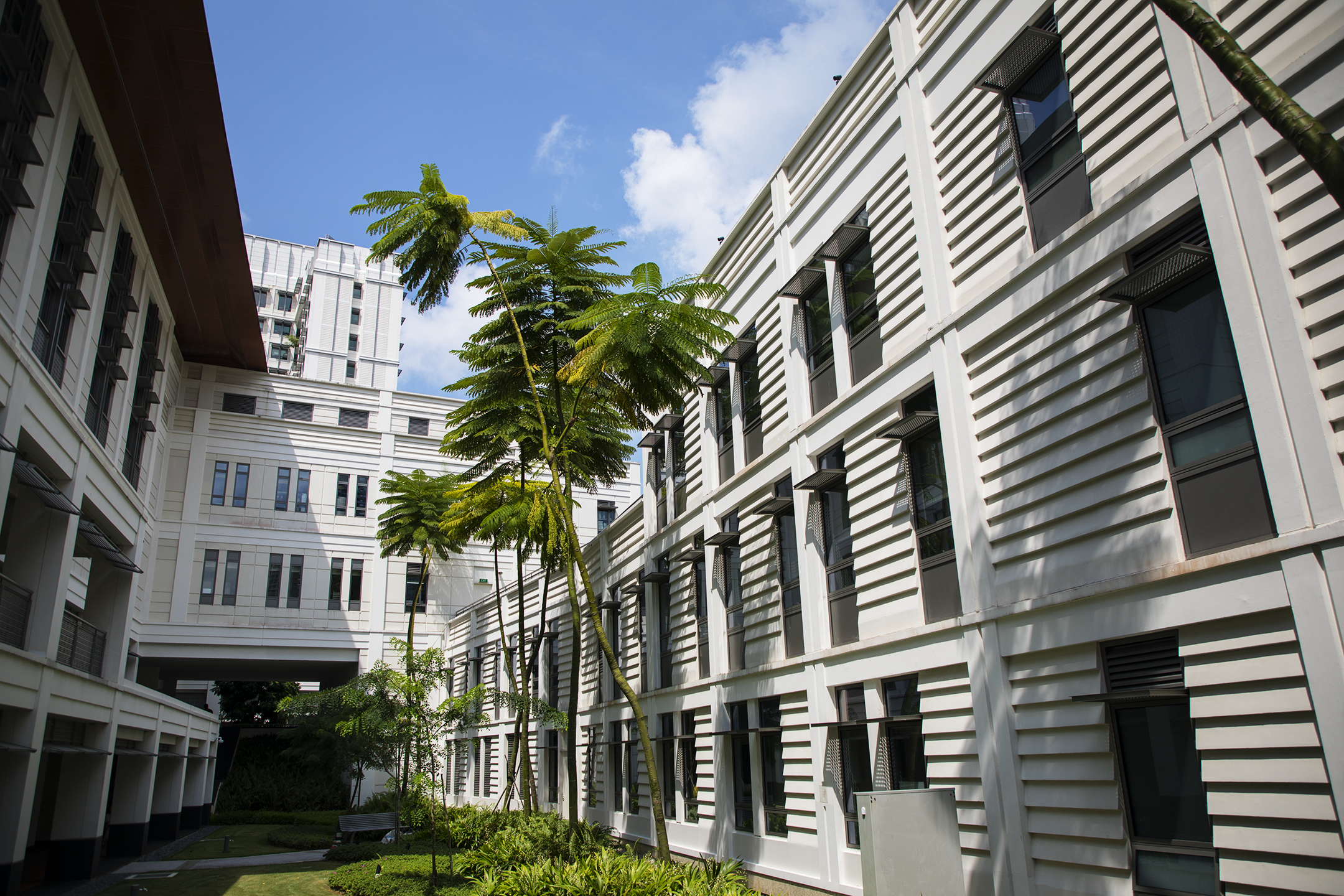
Many Yale-NUS faculty found it “slightly nauseating” to see Yale colleagues fly into Singapore to teach short courses without building deep ties or having any meaningful academic responsibilities, according to former Yale-NUS philosophy professor Jay Garfield. Garfield, who taught at the school from 2013 to 2016, has since returned to his previous post at Smith College.
“There was always this stream of faculty members from Yale flying in for short visits, giving a few lectures or a short course, being lauded as these deities coming from New Haven among us and then flying back out,” Garfield said. “The short courses were pretty useless and were there mostly to reinforce the idea that Yale was a truly great university, and that you should be really glad to have these soles of the feet of Yale people tread our stones.”
As of this week, a substantial majority of the Yale professors who are listed on the Yale-NUS website as visiting faculty taught in Singapore for two weeks at most. At least four Yale professors listed as visiting faculty online have not yet visited Yale-NUS, while several who remain listed have long since returned to New Haven.
Lewis, the former Yale-NUS president, said that about 20 Yale faculty have spent a semester or full academic year in Singapore, while close to 100 have taught at Yale-NUS for only a week or two. There is no graded work for these short courses, which do not count toward students’ major requirements.
And while Yale faculty interviewed said they left Yale-NUS with a positive impression, some at the University, such as emeritus law professor Peter Schuck, said they had not spent enough time in Singapore to develop connections to the institution or its community.
“I was favorably impressed by the program and faculty there, but my impression is superficial due to my limited time there, much of which was jet lag,” Schuck said.
While the two-week and week-long courses offered by Yale faculty were not offered earlier this fall, they remain of high value to the school, a Yale-NUS spokesperson said. The College is in the process of re-evaluating the course program to draw more value from the short visits, Lewis said.
But to Garfield, the short courses are emblematic of Yale’s superficial and condescending approach to partnering with Yale-NUS.
“Yale-NUS is a really good college with really good approaches to international education and interdisciplinarity, and Yale could learn a lot from that,” Garfield said. “But I don’t see Yale as an institution that’s interested in learning from Yale-NUS as much as it is interested in playing with Yale-NUS, and I think that’s sad.”
Criticism of the Yale-NUS venture extends beyond the short courses offered at the Singaporean college, though.
Computer science professor Michael Fischer said Yale is losing out in a zero-sum game — however minimal, the amount of time and effort spent by University administrators and professors in Singapore over the years would have been better spent dealing with pressing issues in New Haven, he said.
Furthermore, Fischer said he remains skeptical that the academic innovations in place in Singapore will be implemented anytime sooner in New Haven because of Yale’s ties with Yale-NUS.
Longtime Singapore resident Michael Montesano ’83, who taught at NUS between 1999 and 2008, said he was pained to see Yale’s administration behave in what he termed an ignorant and slapdash manner by agreeing to partner with NUS.
“The Singaporeans have a very studied approach to their education system, and they know what they are doing. They wanted this, they built it — more power to them,” Montesano said. “What bothered me most was that Yale had no idea what it was getting into.”
AN ILLIBERAL ALLIANCE
For some, the issue is not the manner but the fact of the relationship.
Since the announcement of Yale’s intention to move forward with plans to establish Yale-NUS, several Yale faculty have expressed their concern about Yale’s involvement in a country with an allegedly illiberal government at its helm.
While Levin told the News that some such critics changed their views after visiting Yale-NUS or hearing from colleagues about the work they were doing there, others remain steadfast in their conviction that Yale has no place in allegedly illiberal Singapore.
French & African American Studies professor Christopher Miller, who has criticized Yale-NUS since its inception, said Yale’s presence in Singapore has made little impact on the country. He noted, for instance, that the government has reaffirmed laws banning sexual contact between men numerous times in the years since Yale-NUS was first founded.
“Yale-NUS is the product of a misalliance between a university that claims to support human values and a regime that represses them,” Miller said. “It remains illegal to be a gay man in Singapore, and the supposedly salutary presence of a liberal-arts institution has thus far made no difference.”
Classics professor Victor Bers added that he was disturbed by the recent case of Amos Yee, a Singaporean teenager who has applied for asylum in the United States on the grounds that he was persecuted for his political opinions in the city-state.
In response to these concerns, Lewis noted the potential hypocrisy in offering assessments on the political climate in other countries.
“I don’t love capital punishment, and I don’t like what happened to Amos Yee,” Lewis said. “I’m a proud American citizen, but we’re not in a position this year in America to tell other countries that they’re not proper democracies and we are a proper democracy.”
Tan Tai Yong.
LOOKING AHEAD
For all of Yale-NUS’ detractors, many faculty who have visited believe the partnership in its current form allows Yale to define and implement a liberal arts education suitable for the 21st century.
But others remain as strongly opposed as they were at the project’s inception. “Yale should end the partnership and should never have been involved in the first place,” Bers said.
Fischer said that he would also like to see the Yale administration engage representatives across the University community in reviewing the prudence of the current arrangement between Yale and Yale-NUS. He recalled that Levin emphasized two key facts when he first proposed the partnership to faculty: establishing Yale-NUS will not cost Yale a dime, and that the partnership would be subject to periodic reviews that would allow Yale to end its affiliation.
“It is time for Yale to review its partnership, and think seriously about what we are contributing and what we are getting,” Fischer said.
But Lewis does not anticipate any formal change in the relationship. He noted that a periodic review of the kind Fischer mentioned recently took place in 2016, and a committee whose membership including deans at Yale found no reason for Yale to change course.
Lewis, who will spend about a tenth of his time in his new role focusing on collaboration with Yale-NUS, said he plans to work toward opening more avenues for exchange between Yale-NUS and Yale — including facilitating opportunities for Yale undergraduates to spend some time in Singapore.
“I hope many people here at Yale can go and see Yale-NUS for themselves and learn what we’re doing, and hopefully think of other ways that there can be collaborations between Singapore and New Haven,” Lewis said. “There’s a lot of good opportunities there.”
Over in Singapore, Yale-NUS administrators are well aware of the divergences in opinion among their partners in New Haven regarding the venture.
Yale-NUS president Tan Tai Yong told the News that earlier reservations and fears about the possibility of a liberal arts education in Singapore have not borne out, and the college’s success in attracting students and faculty has proven that, if given the right nurturing, a liberal arts college is not the strict preserve of a North American environment.
Tan added that Singaporean government remains steadfast in its support, and that Salovey and University Provost Benjamin Polak are quick to respond to any requests he and his colleagues may have. But Tan is also clear that the reputation and success of the college he has led since this summer must be achieved on its own terms — he does not intend for Yale-NUS to be “flying Yale’s flag in another part of the world.”
“We are redefining the liberal arts, not just copying Yale. Some in New Haven still think that this is Yale planted here, and it’s not,” Tan said. “I have always maintained to my colleagues here that as long as we do well, Yale will be happy. That is what we are doing — but as our own entity.”
Clarification, Oct. 10: This version of the article clarifies computer science professor Michael Fischer’s quote regarding his attitude toward reviewing Yale’s involvement with Yale-NUS.
Clarification, Oct. 10: This version of the article clarifies that University President Peter Salovey was unable to attend the Yale-NUS Commencement because it took place shortly after a reunion weekend.

